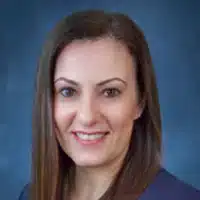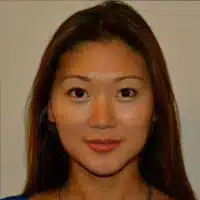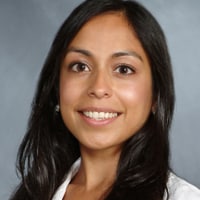Eye Care Center

Focus on Eye Health
Most people experience some sort of eye problems. Some are minor and will correct themselves. Others need a specialist’s care.
Grady’s Eye Center is one of the region’s leading eye care institutions and specializes in diagnosing and managing complex eye disease through medical and surgical treatment.
Our optometrists and ophthalmologists – specialists in the care and treatment of vision and eye issues – offer comprehensive eye services, from routine eye examinations, to the diagnosis and treatment of complex ophthalmologic disorders and diseases, to eye surgery.
Grady’s ophthalmologic team has broad experience with the gamut of eye conditions and diseases. But, most importantly, they specialize in you and your needs. We can help you with the best treatment, the support you need, and help to resume your daily routine.
Why Choose Us
Grady’s Eye Center is staffed by some of the nation’s most experienced ophthalmologists and optometrists. Each year, they care for 26,000 patients, handling everything from simple eye examinations to the most complex eye trauma, and perform thousands of surgical procedures.
Our specialists offer medical, surgical and pediatric ophthalmology services. Our team has unparalleled experience with retinal health, glaucoma, oculoplastics (plastic surgery for the eye), corneal health, neurological issues, pediatrics and strabismus (muscle correction for eye alignment).
Grady’s eye team serves on the faculty of Emory School of Medicine. They use state-of-the-art medicines and medical devices to diagnose and care for patients. And, because eye conditions are often related to other health concerns, Grady offers a unique advantage. We’ve spent more than 125 years building the most comprehensive medical services in Atlanta to deliver the best care possible.
What We Treat
We have the skills to treat virtually every eye condition, including:
A common condition that causes blurred vision, astigmatism occurs when the cornea (the clear front cover of the eye) is irregularly shaped or sometimes because of the curvature of the lens inside the eye.
Learn more about astigmatism here.
A common eye disorder, blepharitis is caused by bacteria or a skin disorder and it can affect people of any age. Most commonly, blepharitis presents as an inflammation of the eyelid.
Learn more about blepharitis here.
A cataract is the clouding of the lens in the eye that affects vision. Most cataracts are related to aging and are common in older people. By age 80, more than half of all Americans either have a cataract or have had cataract surgery.
Learn more about cataract here.
Cytomegalovirus retinitis (CMV retinitis) is a serious viral eye infection of the retina, the light-sensing nerve layer that lines the back of the eye. It is most often found in people with weakened immune systems.
A corneal abrasion is a superficial scratch on the clear lens at the front of your eye. This cornea can be scratched by contact with dust, dirt, sand, or other materials.
Learn more about corneal abrasions here.
Corneal dystrophies are a group of rare, genetic diseases that affect the cornea, the front part of your eye. They may cause significant vision impairment.
The most common cause of vision loss in people with diabetes, diabetic retinopathy is a leading cause of blindness among working-age adults.
Learn more about diabetic retinopathy here.
Dry eye is not just an annoyance. It can cause inflammation, blurred vision, and even blindness in extreme cases.
Learn more about dry eye here.
This is a group of eye conditions that damage the optic nerve. The damage is often caused by high pressure in your eye. Glaucoma is one of the leading causes of blindness for people over 60 years of age.
Learn more about glaucoma here.
Keratoconus is an eye disorder in which your cornea thins over time. The cornea also bulges out to form a cone-like shape.
Learn more about keratoconus here.
Sometimes called age-related macular degeneration, this is a medical condition that may blur a patient’s vision or block vision in the center of the visual field.
Learn more about macular degeneration here.
This is an emergency situation in which the retina pulls away from its normal position. The longer retinal detachment is untreated, the greater the risk of permanent vision loss.
This is a blockage of the small veins that carry blood away from the retina. It is typically caused by high pressure within the eye.
This is the name for a group of rare, genetic conditions that involve the breakdown and loss of cells in the retina. Typically, patients suffering from retina pigmentosa have difficulty seeing at night and lose peripheral vision.
Learn more about retinitis pigmentosa here.
Strabismus is most common in children. It is when the eyes don’t line up, or they are crossed. The eyes (one or both) may turn inward, outward, turn up, or turn down.
This eye inflammation affects the tissue in the eye wall and can present with eye redness, pain and blurred vision.
Learn more about uveitis here.
Make an Appointment
Call (404) 616-1000, Monday-Friday, from 6 a.m. to 11 p.m. to schedule your appointment.
If you are an existing Grady patient and have a MyChart account, visit MyChart to request your appointment online.
Locations and Directions
-
Correll Pavilion
80 Gilmer St. SE
Atlanta, GA 303036th FloorMonday – Thursday 7:30 AM – 5 PM
Friday 12:30 PM – 5 PM
-
Kirkwood Health Center
1863 Memorial Drive SE
Atlanta, GA 30317Monday - Friday 8 AM - 3:30 PM -
Brookhaven Health Center
2695 Buford Hwy NE
Atlanta, GA 30324Monday, Tuesday, Thursday, Friday 8 AM - 3 PM
Our Services
No matter what your eye care needs, Grady offers the right treatment option for you. We offer:
Our ophthalmologists routinely diagnose and treat virtually all eye conditions, injuries, and diseases. In most cases, we can treat patients medically. However, when more aggressive treatment is required, our experienced surgeons are ready to serve.
In addition to our highly skilled ophthalmologists, we have an experienced team of optometrists who can conduct eye examinations and identify issues.
Screenings can help to determine if you need medical treatment for glaucoma or cataract.
This reconstructive surgery focuses on the eyelids, eyebrows, the bone around the eye, and the tear system. The procedure is commonly done to correct and treat injuries and diseases of the eye, eyelid, and surrounding areas.
The procedure is used to improve the refractive state of the eye and decrease the need for correction through glasses or contact lenses. It can include cornea remodeling, lens implantation, or lens replacement.
Our Doctors
Every hospital treats patients. At Grady, we strive to treat them better, more efficiently and more effectively. Our mission to care for all who need us attracts physicians from across the nation. They are drawn here by the knowledge that we test the limits of medicine by innovating existing standards of care, researching cutting-edge drugs and therapies, and exploring novel treatments.
Our zeal for innovation has given Grady a national reputation for medical advancement in areas like cancer, burns, stroke, diabetes, infectious diseases, women’s health, sickle cell, and other conditions cared for by specialists in our centers of excellence. Access to all of these accredited practices is available to every Grady patient and our collegial environment means that specialists routinely help to care their colleagues’ patients.
Our ophthalmologists, who serve on the faculty of Emory School of Medicine, are drawn by Grady’s reputation and mission.
Ophthalmology
Ophthalmology
Ophthalmology
Ophthalmology
Ophthalmology
Ophthalmology
Optometry
Ophthalmology
Optometry
Associate Chief, Ophthalmology
Ophthalmology
Ophthalmology
Ophthalmology
Optometry
Ophthalmology
Optometry
Neuro-ophthalmologist
Optometry
Chief of Ophthalmology
Ophthalmology
Optometry
Optometry Services Director
Ophthalmology
Ophthalmology
Ophthalmology



















